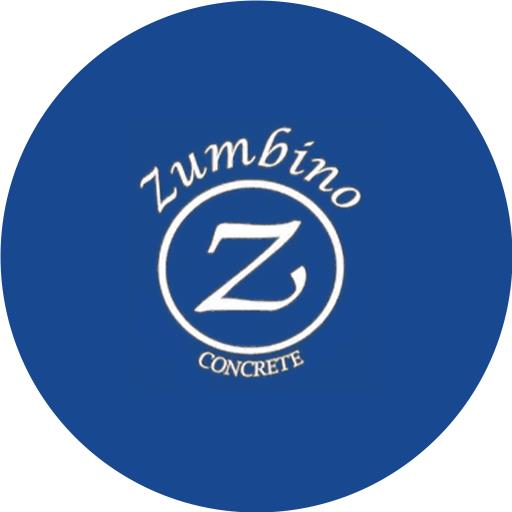
Zumbinoconcrete
Uploaded on Apr 15, 2025
Category
Business
Learn how to choose the best sealers for protecting your stamped concrete driveway with this expert guide from Zumbino Concrete, a trusted U.S. based constructor in concrete work. Discover the benefits of sealing to enhance appearance, prevent surface damage, and extend the life of your stamped concrete. Whether you're maintaining your driveway or dealing with cracked concrete repair, Zumbino Concrete provides reliable solutions designed for long-term durability and curb appeal.
Category
Business
Best Sealers for Protecting Your Stamped Concrete Driveway
Best Sealers for Protecting Your
Stamped Concrete Driveway
Stamped Concrete Driveways is a beautiful and durable investment that will give your
home a charm and value. However, sealing is essential to maintain its color, texture and
general integrity. The right seal protects against weather damage, dirt and general wear
and ensures that your stamped concrete driveway remains in the top state for many
years.
At Zumbino, we specialize in the installation and maintenance of stamped concrete
driveway and are here to guide you to select the best seals.
Why is it important to seal your Stamped Concrete
Driveway?
Moisture Protection: Concrete is porous and can absorb water. This leads to cracks
and surface damage, especially in the climate zones of the freezer.
Improved Coloring Retention: The seal prevents UV damage and fading, leaving
the decorative color of the stamped concrete driveway alive.
Resistance to Dirt and Chemicals: Oil, grease, and de-icing salt can create spots
and erode driveway over time. The sealer acts as a protective barrier.
Improved Longevity: The sealed surface resists splitting, cracking and wear from
foot and vehicle traffic.
Easy-to-maintain: The sealed driveway is easy to clean and requires frequent
repairs.
Types of Sealers for Stamped Concrete Driveways
1. Acrylic Sealers:
Acrylic sealers are a common choice for protecting decorative concrete due to their
affordability and ease of application.
● Pros:
○ Enhances color vibrancy with a glossy or matte finish.
○ Quick-drying and easy to reapply.
○ Provides moderate protection against moisture and stains.
● Cons:
○ Requires reapplication every 1-3 years.
○ Less durable than other options.
2. Penetrating Sealers:
Penetrating sealers, such as silane, siloxane, and siliconate-based products, work by
absorbing into the concrete rather than forming a surface layer.
● Pros:
○ Excellent protection against moisture and freeze-thaw damage.
○ Does not alter the natural look of the concrete.
○ Long-lasting (up to 5-10 years).
● Cons:
○ Does not enhance color or provide a glossy finish.
○ May require multiple applications for maximum effectiveness.
3. Polyurethane Sealers:
Polyurethane sealers provide superior durability and are ideal for high-traffic
driveways.
● Pros:
○ Highly resistant to chemicals, stains, and abrasion.
○ Enhances color with a glossy or satin finish.
○ Lasts 5+ years with proper application.
● Cons:
○ More expensive than acrylic sealers.
○ Requires professional application for best results.
4. Epoxy Sealers:
Epoxy-based sealers offer exceptional strength and protection but are best suited for
indoor concrete or areas with minimal UV exposure.
● Pros:
○ Extremely durable and resistant to chemicals and wear.
○ Provides a thick, high-gloss finish.
● Cons:
○ Not UV-resistant—can yellow or degrade in direct sunlight.
○ More challenging to apply and remove.
Choosing the Right Sealer for Your Driveway
The best sealer for your stamped concrete driveway depends on several factors:
● Climate: If you live in an area with harsh winters, a penetrating sealer with
strong moisture resistance is ideal.
● Desired Appearance: For a glossy, enhanced finish, an acrylic or polyurethane
sealer is best.
● Durability Needs: High-traffic driveways benefit from long-lasting
polyurethane sealers.
● Budget: Acrylic sealers are the most cost-effective but require frequent
reapplications.
How Often Should You Reseal Your Driveway?
● Acrylic sealers: Every 1-3 years.
● Penetrating sealers: Every 5-10 years.
● Polyurethane sealers: Every 5+ years.
● Epoxy sealers: Typically used indoors, but reapplication may be needed every
few years.
Common Mistakes to Avoid When Sealing
● Applying too much sealer, which can cause bubbling or cloudiness.
● Not allowing enough drying time between coats.
● Sealing damp concrete, leading to improper adhesion.
● Using the wrong type of sealer for your climate or surface type.
Final Thoughts
Protecting your stamped concrete driveway with the right sealer ensures it remains
beautiful, durable, and resistant to damage. Whether you’re looking for a high-gloss
finish, superior stain resistance, or long-term protection, choosing the right sealer
makes all the difference.
At Zumbino, we provide expert guidance on selecting, applying, and maintaining
sealers for driveways and patios. Contact us today to learn more about our concrete
sealing services and keep your driveway in top condition for years to come!

Comments